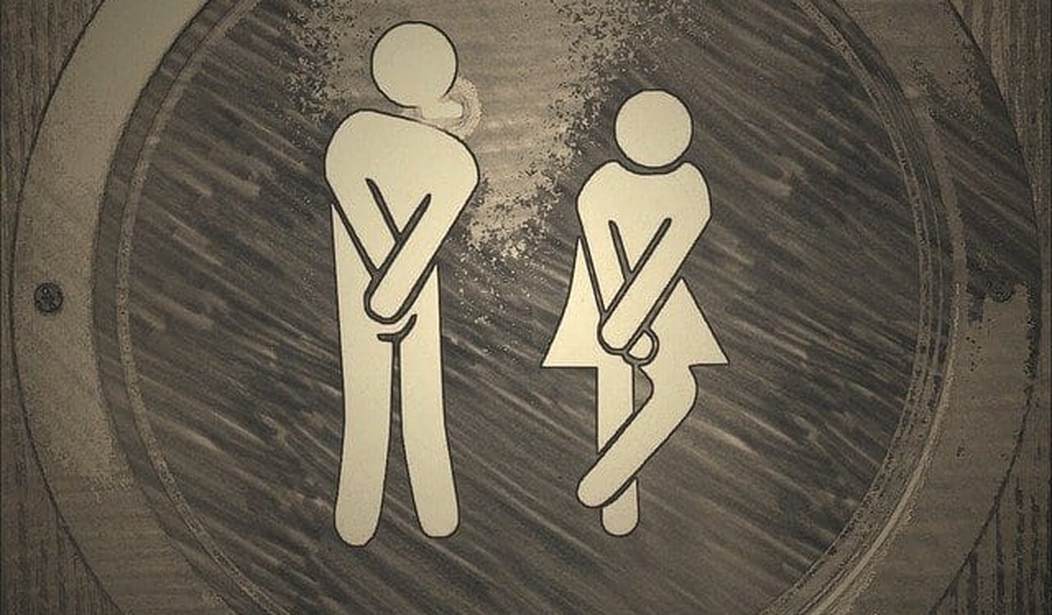As if the world didn’t have enough to worry about right now, researchers are reporting another odd COVID-19 symptom: Restless anal syndrome (RAS). I kid you not.
A case report at the Japanese journal BMC Infectious Diseases described the symptoms:
Although a 77-year-old male with COVID-19 improved to normal respiratory function 21 days after admission and treatment of favipiravir 200 mg per day for 14 days and dexamethasone 6.6 mg per day for 5 days, the insomnia and anxiety symptoms remained. Several weeks after discharge, he gradually began to experience restless, deep anal discomfort, approximately 10 cm from the perineal region. The following features were observed in the anal region; urge to move is essential, with worsening with rest, improvement with exercise, and worsening at evening.
Leaving aside the (probably unintentional) “discharge” pun, this sounds like an incredibly uncomfortable condition. A colonoscopy revealed that the patient had internal hemorrhoids, but no other abnormalities and no other health problems that would account for the condition.
The patient had never experienced anal restlessness or discomfort prior to his COVID-19 infection, but several weeks after discharge from the hospital, “he gradually began to experience restless, deep anal discomfort, approximately 10 cm from the perineal region,” his doctors said. “This restless anal discomfort did not improve following defecation.”
Walking and running and “enthusiastically playing the television game” (!?) gave the poor man some relief, but resting exacerbated the condition, which tended to worsen in the evening. Treatment with 1.5 mg of Clonazepam per day—a common treatment for restless leg syndrome (RLS)—gave the patient some relief.
“Because he had never experienced anal restless and discomfort before affecting [sic] COVID-19 and the anal restless symptom developed after COVID-19, we considered that these anal restless symptoms were suggested the COVID-19 related syndrome,” the report said.
Doctors believe the condition could be a variant of restless leg syndrome, as it shares the same four essential characteristics: urge to move, worsening with rest, improvement with exercise, and worsening at night.
This is the first documented case of RAS related to COVID-19, although there is also a documented case of post-COVID RLS. The researchers caution that the “causative relation” between COVID and RLS/RAS “remains unclear.”
“COVID-19 related RLS or RLS variant may be underdiagnosed and we should pay attention to similar cases in order to clarify… relation between COVID-19 and RLS,” the researchers say.
The Mayo Clinic lists a whole host of possible long-term COVID symptoms, including:
- Fatigue
- Shortness of breath or difficulty breathing
- Cough
- Joint pain
- Chest pain
- Memory, concentration or sleep problems
- Muscle pain or headache
- Fast or pounding heartbeat
- Loss of smell or taste
- Depression or anxiety
- Fever
- Dizziness when you stand
- Worsened symptoms after physical or mental activities
There have also been reports of organ damage, blood clots, and long-term memory problems post-COVID.
On a personal note, I’m 10 months out from a COVID infection. While my sickness was relatively mild—a dry cough and severe fatigue for about a week—I’ve also experienced some long-haul symptoms. Only about 10% of my smell and taste have recovered, and the fatigue and brain fog still come and go. For now, no sign of restless anal syndrome, thank goodness.
I’m not here to scare anyone into taking the vaccine. I trust readers to make their own health decisions in consultation with their doctors and it’s nobody’s business but your own—least of all the federal government. Personally, knowing what I know now, if I hadn’t already recovered from COVID, I’d be lining up to take the vaccine. The brain fog and loss of taste and smell—think about going nearly a year without smelling a delicious burger on the grill or tasting a piece of chocolate cake—really do suck. And I’ve suffered very little compared to many people who were infected with very tragic results. I’m actually considering getting a booster jab because there are a lot of (mostly anecdotal) reports of people getting their smell and taste back after receiving it.
There’s still a lot that researchers don’t know about this virus. They’re learning more every day. One thing we do know: This is one weird virus.










Join the conversation as a VIP Member